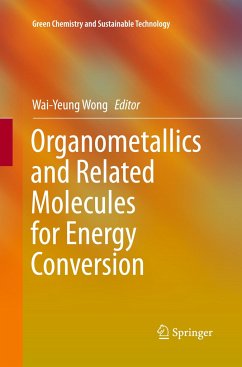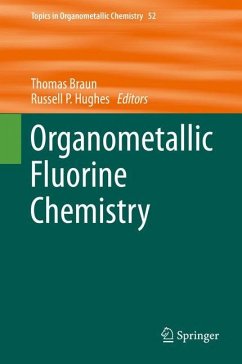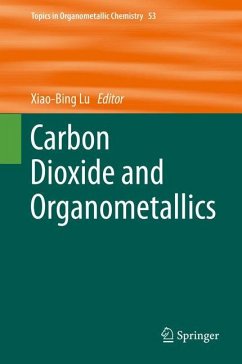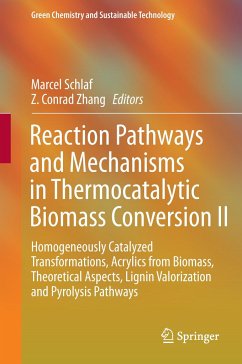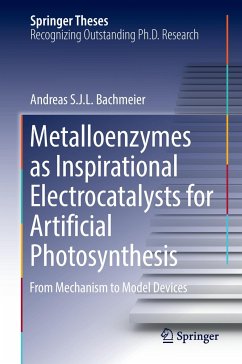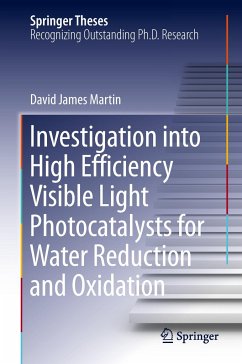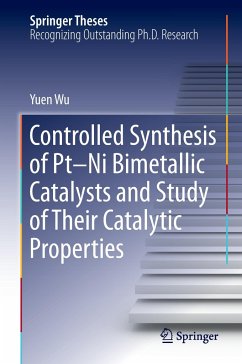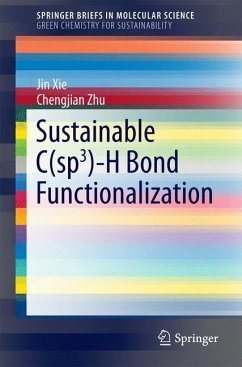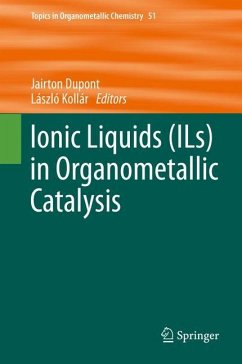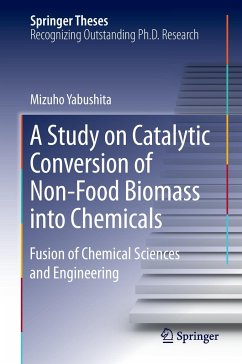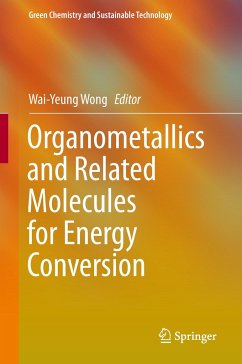
Organometallics and Related Molecules for Energy Conversion

PAYBACK Punkte
39 °P sammeln!
This book presents a critical perspective of the applications of organometallic compounds (including those with metal or metalloid elements) and other related metal complexes as versatile functional materials in the transformation of light into electricity (solar energy conversion) and electricity into light (light generation in light emitting diode), in the reduction of carbon dioxide to useful chemicals, as well as in the safe and efficient production and utilization of hydrogen, which serves as an energy storage medium (i.e. energy carrier).This book focuses on recent research developments ...
This book presents a critical perspective of the applications of organometallic compounds (including those with metal or metalloid elements) and other related metal complexes as versatile functional materials in the transformation of light into electricity (solar energy conversion) and electricity into light (light generation in light emitting diode), in the reduction of carbon dioxide to useful chemicals, as well as in the safe and efficient production and utilization of hydrogen, which serves as an energy storage medium (i.e. energy carrier).
This book focuses on recent research developments in these emerging areas, with an emphasis on fundamental concepts and current applications of functional organometallic complexes and related metal-based molecules for energy research. With contributions from front-line researchers in the field from academia and industry, this timely book provides a valuable contribution to the scientific community in the field of energy science related to metal-based molecular materials.
Wai-Yeung Wong, PhD, is Chair Professor and Head of the Department of Chemistry at Hong Kong Baptist University, Hong Kong, P. R. China.
This book focuses on recent research developments in these emerging areas, with an emphasis on fundamental concepts and current applications of functional organometallic complexes and related metal-based molecules for energy research. With contributions from front-line researchers in the field from academia and industry, this timely book provides a valuable contribution to the scientific community in the field of energy science related to metal-based molecular materials.
Wai-Yeung Wong, PhD, is Chair Professor and Head of the Department of Chemistry at Hong Kong Baptist University, Hong Kong, P. R. China.





